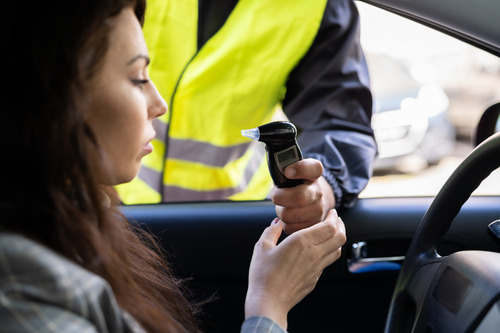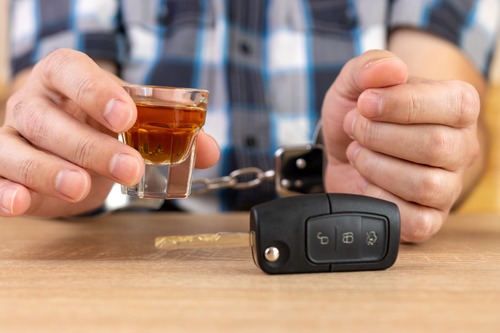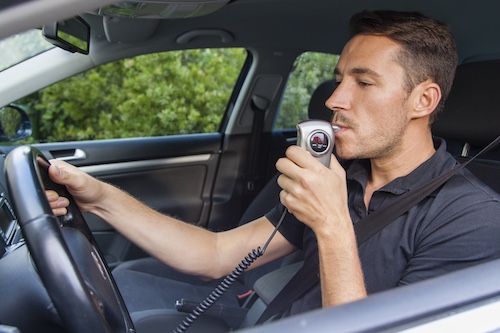At Asheville DUI Guy, we focus exclusively on defending individuals charged with DUI and DWI offenses in Asheville and Western North Carolina. Our team, led by a former assistant district attorney, brings deep knowledge of North Carolina’s DUI laws and local court procedures. We are committed to providing personalized legal representation, thoroughly reviewing each case, and developing tailored defense strategies to achieve the best possible outcome for our clients.
Getting stopped for drunk driving when your blood alcohol content is just over the legal limit can feel like the end of the road. However, a high reading does not always lead to a conviction. In North Carolina, DWI charges depend on more than a number. The way alcohol affects your body, how the test was done, and what the officer observed all matter.
In this blog, we explain how blood alcohol content is measured, why being just over the legal limit does not guarantee a conviction, and how working with an experienced Asheville DUI defense attorney can help you challenge the evidence and protect your rights.
Understanding Blood Alcohol Content (BAC)
Knowing how blood alcohol content works is important if you have been charged with DWI in North Carolina. This section explains what BAC is, how it is measured, and why it matters in drunk driving cases.
What Is Blood Alcohol Content?
Blood alcohol content (BAC) is the amount of ethanol, or ethyl alcohol, in a person’s bloodstream. It is shown as a percentage. A BAC of 0.08 means 0.08 grams of alcohol per 100 milliliters of blood.
In North Carolina, the legal limit is 0.08 percent for drivers 21 and older. It is 0.04 percent for commercial drivers. Drivers under 21 cannot have any measurable alcohol in their system.
How Is BAC Measured?
BAC is measured with a breath or blood alcohol content test. A breath test checks alcohol in the air from the lungs. A blood test checks a sample taken with a small needle and stored in a test tube.
Blood tests are more accurate but take longer. Breath tests are faster and more common at traffic stops. Both can be challenged by a DUI defense attorney if the procedures were not followed properly.
Factors That Affect BAC Levels
Many factors affect BAC. These include body weight, sex, age, food intake, and how fast the alcohol was consumed.
The type of alcoholic drinks, such as beer, wine, or liquor, also matters. BAC can keep rising even after the last drink, depending on how the body processes the alcohol.
Why BAC Matters in a DWI Case
BAC is a key part of most DWI charges. But a BAC just over the legal limit does not guarantee a conviction.
Some people may show signs of impairment at a lower BAC, while others may not appear impaired at a higher level. A DUI defense lawyer may question the accuracy of the test or the timing of the result.
Is Being “Just Over the Legal Limit” Enough to Convict You?
Being slightly over the legal blood alcohol content can lead to a DWI charge, but it does not always result in a conviction. This section explains why a borderline BAC reading may not be enough to prove guilt in court.
The Legal Limit in North Carolina
In North Carolina, the legal limit for blood alcohol content is 0.08 percent for drivers age 21 and over. For commercial drivers, the limit is 0.04 percent. Drivers under 21 are subject to a zero tolerance policy.
These limits are defined by N.C. Gen. Stat. § 20-138.1. A person with a BAC above these levels is considered legally impaired. However, the prosecution still has to prove the test result is reliable and taken at the right time.
BAC Alone Is Not Always Enough
A BAC just over the legal limit may not be enough by itself to convict someone of drunk driving. Other evidence is often needed, such as how the person was driving, their behavior during the stop, and results from field sobriety tests.
A skilled DUI defense lawyer may argue that the person was not actually impaired. If the person showed normal motor control, clear speech, and steady balance, that may raise doubt about the level of impairment.
Testing Devices Have Margins of Error
BAC tests are not always exact. Breathalyzers and blood alcohol content tests can have small errors due to device problems, poor handling, or improper timing.
For example, if a person took a drink shortly before driving, their BAC might still be rising at the time of the test. In that case, the result could be higher than the level at the time of driving. This is called a rising BAC and can be used in a defense.
Officer Observations Matter
Officers use more than just BAC numbers when making an arrest. They look at signs of alcohol intoxication such as slurred speech, impaired vision, slow reaction time, and confusion.
However, these signs can come from other causes, like fatigue or medical conditions. If the officer’s observations do not match the BAC level, it may weaken the case.
The Role of a DUI Defense Lawyer
A DUI defense attorney can review the details of the arrest, the blood alcohol test, and all related evidence. They may find errors in testing, problems with the stop, or issues with how the evidence was handled.
Even if your BAC was slightly over the legal limit, you still have the right to challenge the charge and protect your record.
Factors That Can Lead to a Dismissal or Not Guilty Verdict
A charge for driving with an illegal blood alcohol content does not always end in conviction. Several legal and technical issues can lead to a case being dismissed or the defendant being found not guilty.
Lack of Probable Cause
An officer must have a clear reason to stop a vehicle. If there was no traffic violation, erratic driving, or other legal basis for the stop, the entire case can be challenged.
Without probable cause, any evidence collected during the stop, including blood alcohol tests, may be ruled inadmissible in court.
Errors in Field Sobriety Tests
Field sobriety tests are often used to assess gross motor impairment and signs of alcohol intoxication. These tests include walking in a straight line, standing on one leg, and following an object with the eyes.
If these tests were performed incorrectly or under poor conditions, their results can be questioned. A DUI defense lawyer can argue that the tests were unreliable or misleading.
Problems with Breath or Blood Alcohol Tests
Breath tests and blood alcohol content tests must follow strict procedures. The devices must be properly calibrated and maintained. The officer must be trained and follow the right steps.
Blood tests must have a secure chain of custody. If a test tube is mislabeled or a sample is not stored correctly, the results may be thrown out.
Rising BAC Defense
BAC levels change over time. Alcohol that was recently consumed may not have fully entered the bloodstream when the person was driving.
If the blood alcohol level was below the legal limit while driving but rose afterward, that could support a not guilty verdict. This is known as a rising BAC and can be supported by expert testimony.
Medical Conditions and External Factors
Some medical conditions can mimic signs of alcohol use or affect breath test results. For example, acid reflux or diabetes can create false positives on breath tests.
Other factors like fatigue, stress, or illness can affect motor control or speech. These signs may look like alcohol intoxication, but have other causes.
Issues with Officer Conduct or Testimony
Officers must follow specific rules during a DWI arrest. If they fail to advise the suspect of their rights or do not document the stop properly, their testimony can be challenged.
Conflicting or incomplete reports may also reduce the strength of the case. A DUI defense attorney will review the officer’s notes and statements for any problems.
Contact an Experienced Asheville DUI Defense Attorney Today!
If you’ve been charged with a DWI in North Carolina, it’s important to have experienced legal representation on your side. At Asheville DUI Guy, our team of skilled DUI defense attorneys is ready to help you navigate the complexities of your case. We will carefully review the evidence, challenge any issues with your blood alcohol content test, and work to protect your rights.
Contact us at 828-759-5556 for a free claim review today!







